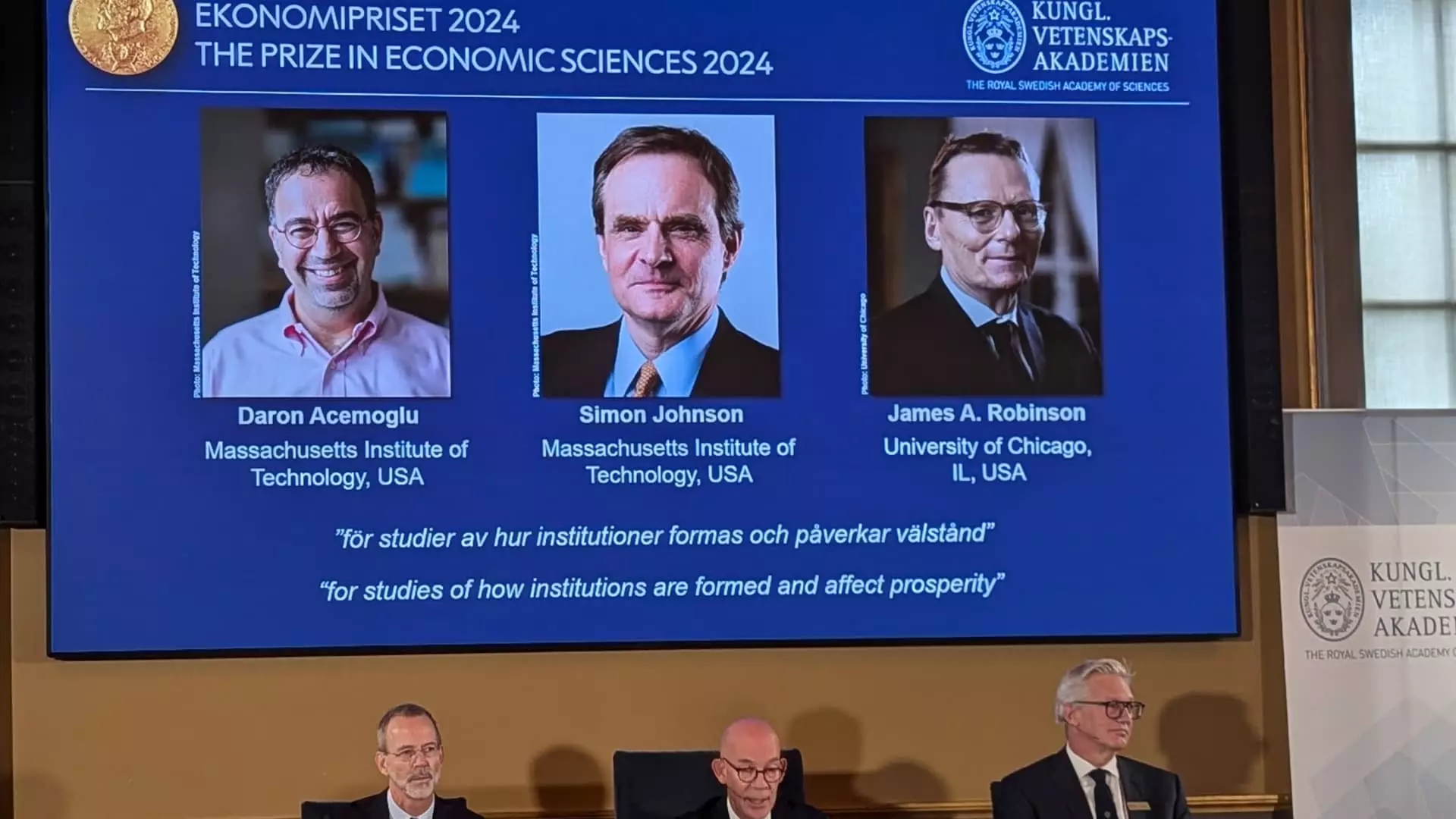On a momentous day for the field of economics, renowned scholars Daron Acemoglu, Simon Johnson, and James Robinson were honored with the Nobel Prize in Economic Sciences. This prestigious accolade, announced on a Monday in October 2023, recognizes their groundbreaking research into the pervasive issue of wealth inequality across nations. The Nobel committee lauded their significant contributions to understanding the relationship between governance, institutional frameworks, and economic development, highlighting that ineffective systems of law and governance often impede advancement.
This recognition is a validation of the theory that the prosperity of nations is highly contingent upon the strength of their institutions. A system characterized by weak law and exploitative governance tends to stifle growth and systemically disadvantage large segments of the population. As succinctly put by the Nobel committee, the laureates have been instrumental in revealing the pivotal role that societal institutions play in shaping a nation’s economic fate.
Daron Acemoglu and Simon Johnson, both professors at the Massachusetts Institute of Technology (MIT), alongside James Robinson, director of the Pearson Institute for the Study and Resolution of Global Conflicts at the University of Chicago, have leveraged their expertise to understand the intricacies of economic disparity. Robinson’s specialized focus on the economies of sub-Saharan Africa and Latin America ties into a broader narrative that highlights how colonial legacies continue to haunt these nations’ economic trajectories.
One of their most impactful contributions to this discourse is encapsulated in their widely acclaimed book, “Why Nations Fail: The Origins of Power, Prosperity, and Poverty,” published in 2012. In this work, they explore historical and contemporary case studies, dissecting how various countries transitioned to their current statuses—wealthy or impoverished—based on their formative institutional setups. A striking statistic presented by the Nobel committee reveals that the richest nations are now approximately 30 times wealthier than the poorest, underscoring the urgent nature of this ongoing crisis and the profound implications that institutional conditions have on economic growth.
The economists’ research also delves into the colonial legacies that laid the foundations of modern economic disparities. The panel noted that nations which were relatively prosperous at the time of colonization often find themselves today among the poorest. This historical analysis reveals alarming truths about how colonial powers established systems that prioritized exploitation rather than equitable development, leaving long-lasting scars on formerly colonized countries.
The work of Acemoglu, Johnson, and Robinson emphasizes that understanding the past is vital for addressing present inequalities. The implications of such findings extend beyond academia—they resonate with policymakers seeking robust solutions to endemic poverty and inequality in various global contexts.
The Nobel Prize awarded to these scholars not only recognizes their past contributions but also brings attention to an enduring question—why do the gaps between wealthy and impoverished nations continue to persist? Economists and social scientists around the world are compelled to confront this dilemma, which remains one of the most urgent inquiries in the study of global economics.
Jakob Svensson, the director and professor of economics at Stockholm University’s Institute for International Economic Studies, noted that the laureates have pioneered both empirical and theoretical methodologies that refine our comprehension of global inequality. Their insights pave the way for new lines of inquiry, inspiring future researchers to delve deeper into the mechanisms that perpetuate wealth gaps and to explore innovative paths toward rectifying these disparities.
In recognition of their monumental achievements, Acemoglu, Johnson, and Robinson will collectively receive a prize of 11 million Swedish kronor, which amounts to approximately $1.058 million. This award will be divided equally among the three scholars, continuing a precedent established in previous years where accolades have been shared among winners. The spotlight on their work this year draws an intersection between economic science and broader humanitarian efforts, paralleling the recognition of social influence in varying fields.
The 2023 Nobel Prize in Economic Sciences serves as a cornerstone for understanding wealth inequality through the prism of institutional development. The research conducted by Acemoglu, Johnson, and Robinson illuminates the complex narratives that shape nations, providing critical insights into how to tackle one of the 21st century’s most pressing challenges. Their work encourages ongoing dialogue, exploration, and action towards an equitable economic landscape globally.


Leave a Reply